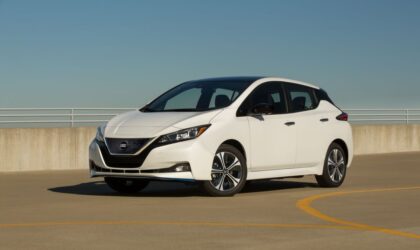 Nissan reveals the Safety Advancement Lab at its Nissan Technical Center North America in Michigan
Nissan reveals the Safety Advancement Lab at its Nissan Technical Center North America in Michigan
Photo: Nissan
The Nissan Technical Center North America (NTCNA) in Michigan has a new addition. The automaker revealed the Safety Advancement Lab. Designed to test vehicle safety, the new lab cost the automaker approximately $40 million, bringing the investment into the engineering center to more than $310 million.
Award Winner: Nissan Leaf named one of the Best Electric Vehicles by Autotrader
The newly created lab falls in line with the automaker’s goal of a virtually zero fatalities-future. It also helps streamline how the brand develops future vehicles.
“This expansion underscores Nissan’s commitment to the region and enables us to be a global center of excellence for new vehicle testing,” said Chris Reed, regional senior vice president, Research and Development, Nissan Americas. “The goal of virtually zero fatalities is always guiding our work. The combination of this new lab plus our passive and active safety technologies can help us reach that goal.”
According to Nissan, the new Safety Advancement Lab accommodates full vehicle crash testing and vehicle certification due to its state-of-the-art equipment. The lab also covers advanced development testing.
“Engineers can conduct 48 different passive safety crash test simulations onsite, creating efficiencies in time and results analysis,” Nissan reports.
A pedestrian safety lab, test dummy calibration lab, high-speed photography systems are also part of the facility, which spans 116,000 square feet.
“Here in the Safety Advancement Laboratory, we’re focused on passive safety,” says Mike Bristol, director, Vehicle Safety Test Engineering, NTCNA. “Our vehicles come equipped with technology to help prevent a crash, but in the event that there is a collision, we’re focused on helping protect customers from injury and evaluating the vehicle structure performance, airbag performance, seatbelt performance, and other mechanisms that help protect our customers.”
The new safety lab also supports the automaker’s 2030 goal that 40 percent of its U.S. sales will come from electrified vehicles. Nissan engineers will have the ability to test and vet high-voltage EV batteries at the lab.
DeAnn Owens is a Dayton transplant by way of the Windy City, yet considers herself to be a California girl at heart even though she’s only visited there once. To get through the dreaded allergy season unique to the Miami Valley, she reads, writes, complains about the weather, and enjoys spending time with her husband, two sons, and their newest addition, a Boston terrier puppy that is now in charge of all their lives. In the future, she hopes to write a novel and travel through time. See more articles by DeAnn.






